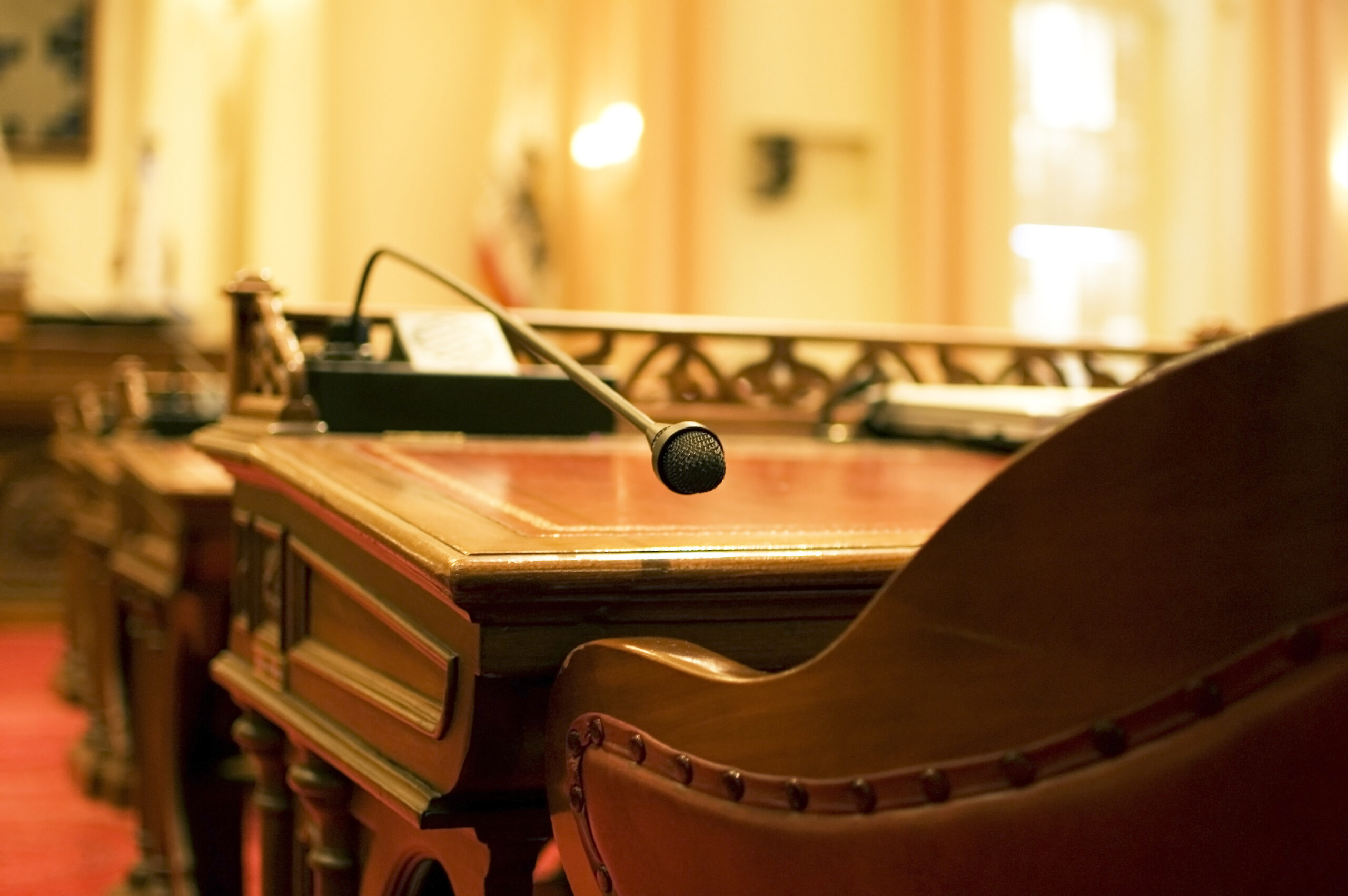This blog post was published in July of 2019, following an outpouring of brands supporting pride month and adopting temporary rainbow branding. Since then, this trend has not only continued, but grown exponentially. It is hard to find a prominent organization without some level of pro-LGBTQ+ messaging or branding during the month of June. While this topic has become more controversial in many queer spaces, there are many positive outcomes from private companies expressing support for the LGBTQ+ community.

First and foremost, this post mentioned Gilead’s sponsorship of NYC Pride while also failing to make their life saving HIV prevention drug, PrEP, easily accessible for poor and marginalized communities. Gilead has since followed through with their promise to provide free Truvada (PrEP) to support the U.S. initiative to end the HIV epidemic. In addition, we are seeing more and more companies making genuine contributions to the community, with brands like Adidas, Apple, and Bath & Body Works backing up their Pride merchandise releases with real financial contributions to LGBTQ+ causes.
What is Commercialization of Pride?
As pride month has gained more traction and visibility over the years, so many companies take advantage of this month to further their businesses and increase sales. Many businesses come out with new merchandise and branding just for pride month to show their support, however rarely does this make any tangible change for the LGBTQIA+ community.
Financial contributions are one of the best ways in which brands can back up their rainbow branding and pride merchandise, but we should not undervalue the societal effects that public displays of support can have. That rainbow colored Coca-Cola might be that one extra push a teenager needs to see that “gay is okay.” Singapore is another great example of how companies can step up for the LGBTQ+ community. The city-state does not have an official Pride celebration, but they do have a Pink Dot celebration every June. Pink Dot Sg is a non-profit movement that, for many Singaporeans, serves as a Pride celebration. Initial celebrations were sponsored by major com[anies such as Microsoft, JP Morgan, and Google.
Post from 2019
Pride month is over, and it’s time we address the multicolored elephant in the room. This June, our social media feeds were flooded with ads from brands who slapped a rainbow filter over their logo and appealed to the LGBTQ community with words of support, acceptance, and love. In short—it was wonderful.
We are giving away our limited edition body sprays at the parade. Not for profit. Just for ❤️. #UnitedWeStand pic.twitter.com/wLnonvsDoG
— AXE (@AXE) June 30, 2019
In honour of 50 years of #pride we’ve asked some of our @lululemonNYC LGBTQ+ employees to share their thoughts on what this moment in time means to them. pic.twitter.com/8jZIzxcjkl
— lululemon (@lululemon) June 30, 2019
It’s time to dress in the colours of the rainbow flag. HAPPY PRIDE! #HM https://t.co/sPwXbVNbs7 pic.twitter.com/IkUE7YFD28
— H&M (@hm) June 16, 2019
This mainstream rainbow imagery and ultra-visibility for the gay, lesbian, and trans US citizens would never have been realized 5, 10, or 15 years ago. With 2019 marking the 50th anniversary of the Stonewall Inn Riots, the New York uprising that was the impetus for every subsequent Pride celebration, the rainbow wave could not have come at a better time.
Brands abandoning conservative values to embrace a community that has historically been oppressed and disenfranchised is extremely empowering and progressive. That being said, this commoditization of LGBTQ imagery and opportunist capitalization of a social justice oriented movement can also be both damaging and problematic.
“Pinkwashing” is a term that originated after many brands began capitalizing on Susan G. Komen’s pink ribbon imagery, selling pink products in the name of “Breast Cancer Awareness” without making any significant contribution to the cause. Pinkwashing has since been adopted as a term for companies using LGBTQ imagery and expressing outward support for the community in order to be viewed as modern and progressive, or even downplay past negative behaviors.
Brands Not Walking Their Pride Talk When it Comes To Business Operations
Albeit some brands do manage to incorporate LGBTQ inclusion and real support, others fail to put their money where their mouth is, for example:
- H&M has an extensive Pride collection of apparel, all with some sort of LGBTQ imagery. They also contribute 10% of their profits from their Pride collection to LGBTQ charities. Nonetheless, many of their manufacturing plants are in China, a country notorious for its historic oppression and persecution of the gay community.
- The pharmaceutical company Gilead is one of the biggest sponsors for New York Pride on a yearly basis. Gilead also manufactures the drug Truvada, or PrEP. PrEP reduces the risk for individuals exposed to HIV to contract the virus by 99%. This drug has saved lives, that is not in question. Though, without insurance it costs over $2,000; it is also a well-known fact that the groups of people most at risk of HIV infection cannot afford the level of insurance coverage that would make the drug available to them. This is a company that has made astronomical amounts of money selling Truvada to the gay community, yet has taken no steps to support the areas of the community that cannot contribute to those profits.
It’s not only retailers and pharmaceutical firms who were guilty of pinkwashing this June:
- On June 17th, Taylor Swift released her predictably sensational music video “You Need to Calm Down.” The absurd, fun, and, above all, gay music video was jam-packed with famous gay, lesbian, and trans people. The straight pop star used all the same iconography as the brands with the rainbow filters over their logos. Some members of the LGBTQ community have chosen to look at it as a carefree celebration of gay culture which provided some much needed visibility for up and coming trans celebrities. However, others have interpreted it to be a blatant appropriation of LGBTQ culture and a garish display of opportunism by a pop star who, historically, has not shown outward support for the gay community. One should note that the video does end with a call-to-action for viewers to sign a petition supporting the Equality Act, currently sitting in the US Senate. Vox highlights the mixed response that the video has since incited in the LGBTQ community.
Pinkwashing and the Rise of Slacktivism
One outcome that stems from brands behaving like this is the rise of slacktivism. The incentive to purchase clothes because some marginal portion of the profits will go to a good cause allows consumers the sentiment that they are contributing to the support of the LGBTQ community. Awareness of the presence of the LGBTQ community, amplified by dawning a $12, rainbow “LOVE” T-Shirt, may be an endearing display of affection towards LGBTQ culture, but it is often mistaken for activism and real support.
So where do we go from here? If June is Pride Month, perhaps July can become Accountability Month. We can call on companies who profited off of the LGBTQ community with their commercialization of pride to turn those profits into real acts of support. Empower your trans employees. Divest from the economies of countries with explicit LGBTQ discriminatory policies. Make your products available to communities of people who need it the most. But, above all, display support not just when it is convenient, and not only when it is profitable. Join in on the conversations that matter, year round. One month of good behavior does not make up for years of taking on the role of not-so-innocent bystander to the systemic oppression and professional discrimination the LGBTQ community has experienced.










